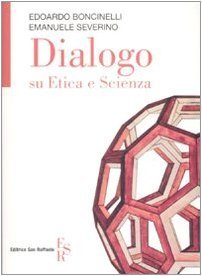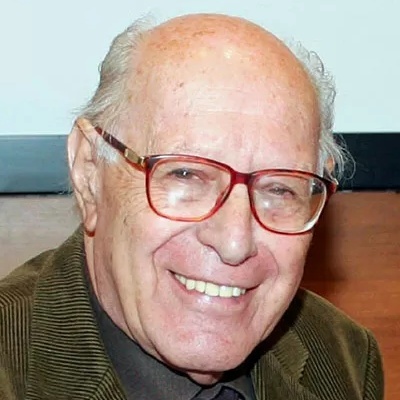
Authors

Scopritore di una famiglia di geni che controllano il corretto sviluppo corporeo nell'uomo, Edoardo Boncinelli è uno scienziato di fama internazionale, fisico di formazione, filosofo per vocazione, e letterato per passione. Edoardo Boncinelli is full professor of Biology and Genetics at the University Vita-Salute in Milan. He has been Director of SISSA-ISAS International School for Advanced Studies in Trieste and Head of the Laboratory of Molecular Biology of Development at the Scientific Institute San Raffaele in Milan. A physicist by training, he worked in the field of genetics and molecular biology of higher animals and man, first in Naples, at the International Institute of Genetics and Biophysics (IIGB) of CNR, where he progressed through most of his scientific career, and subsequently in Milan. He is a member of Academia Europaea and EMBO, the European Molecular Biology Organisation, and a past-president of the Italian Society of Biophysics and Molecular Biology. In 2005 he received the EMBO Award for Communication in the Life Sciences. His research interests, all revolving around embryonic development of Vertebrates, range from the very early determination of body axis to the formation and subdivision of the cerebral cortex. His personal interests have progressively drifted toward the study of mind and higher mental functions. He wrote some popular books on biology: "A caccia di geni" (Di Renzo Editore), "I nostri geni" (Einaudi) and "Il cervello, la mente e l'anima" (Mondadori). In 2000 he wrote “Le Forme della Vita” (Einaudi), and three debate-books with Umberto Galimberti (Einaudi), Aldo Carotenuto (Bompiani) and Umberto Bottazzini (Cortina). In 2001 he published "Prima lezione di biologia" (Laterza) and "Genoma: Il grande libro dell'uomo" (Mondadori); in 2002 "Io sono tu sei" (Mondadori); nel 2003 "Tempo delle cose, tempo della vita, tempo dell'anima" (Laterza); in 2004 "Il posto della scienza" (Mondadori). In 2005 he published "Verso l'immortalita'?" (Cortina) with Galeazzo Sciarretta, "Sani per scelta" (Corriere della Sera) and "Prodigi quotidiani" (Boroli). In 2006 "L'anima della tecnica" (Rizzoli), "La magia della scienza" (Archinto) and "Idee per diventare genetista" (Zanichelli). In 2007 "Il male" (Mondadori). In 2008 "L'etica della vita" (Rizzoli) and "Dialogo su etica e scienza" with Emanuele Severino (Editrice San Raffaele). Currently a columnist for Le Scienze, the italian edition of Scientific American, and Il Corriere della Sera. Edoardo Boncinelli has significantly contributed to our understanding of biological mechanisms of embryonic development in higher animals and man. In 1985, he was among the first to grasp the significance of the novel discoveries on the genetic control of drosophila development and to try and apply them to the study of human beings. His group identified and characterised a gene family, the 39 HOX homeogenes, controlling the correct development of the trunk, from neck to tail. These findings are recognised as landmarks of the biology of this time, if not of everytime. From 1991, he undertook the study of the developing brain and cerebral cortex, identifying a couple of additional homeogene families playing a major role in the underlying processes, in health and disease.

Emanuele Severino (26 February 1929 – 17 January 2020) was a Italian philosopher. Because of his original philosophical position, the so-called neoparmenidism, Severino was claimed to be "a giant" and "the only philosopher who in the 20th century can be compared to Heidegger". In 1970, the Congregation for the Doctrine of the Faith ruled that Severino's ideas were not compatible with Christianity as the basis of Severino's belief in "the eternity of all being," a belief said to eliminate a Creator God. Severino received from the President of the Italian Republic the "Golden medal of the Republic for culture merits" (Medaglia d’oro della Repubblica per i Benemeriti della Cultura). He died in January 2020 due to a lung disease.